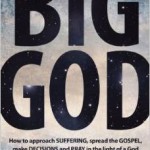I love to read. By God’s grace I am a pretty fast reader; I usually read a couple books each week. I find it helpful to summarize my thoughts on each book and I offer those thoughts in the hope that you will be encouraged to either read or pass over the given title.
 Reverberation: How God’s Word Brings Light, Freedom, and Action to His People by Jonathan Leeman. Two years ago I read this book and loved it. Two years and one re-read later I love it even more. Leeman fully understands the sufficiency of Scripture for the life of God’s people and communicates with winsome clarity. His imagery of the word going out from the pulpit and then reverberating through the church’s conversation, conduct, and mission is excellent. The book serves church leaders well as it gives consistent application for how a church runs and worships. Reverberation will help any Christan appreciate the power of God’s word to grow His church, and is one of the best discipling tools a pastor can have in his arsenal.
Reverberation: How God’s Word Brings Light, Freedom, and Action to His People by Jonathan Leeman. Two years ago I read this book and loved it. Two years and one re-read later I love it even more. Leeman fully understands the sufficiency of Scripture for the life of God’s people and communicates with winsome clarity. His imagery of the word going out from the pulpit and then reverberating through the church’s conversation, conduct, and mission is excellent. The book serves church leaders well as it gives consistent application for how a church runs and worships. Reverberation will help any Christan appreciate the power of God’s word to grow His church, and is one of the best discipling tools a pastor can have in his arsenal.
 Big God: How to Approach Suffering, Spread the Gospel, Make Decisions and Pray in the Light of a God Who Really is in the Driving Seat of the World by Orlando Saer. I picked up this book based on the glowing recommendation of Mark Dever and, to be honest, I was a bit disappointed. Expectations were too high I guess. I do love Saer’s intent: show how a big God (read: a God sovereign over all things) relates to our suffering, evangelism, and prayer. Yet, in spite of having content utterly grounded in Scripture, I found the book – on the whole – to be rather verbose (as the subtitle bears out). The wordiness of Big God is largely due to the overabundance of illustrations. I would have like to see him trim down the anecdotes so that the rich truth he offers doesn’t get muddied in the process.
Big God: How to Approach Suffering, Spread the Gospel, Make Decisions and Pray in the Light of a God Who Really is in the Driving Seat of the World by Orlando Saer. I picked up this book based on the glowing recommendation of Mark Dever and, to be honest, I was a bit disappointed. Expectations were too high I guess. I do love Saer’s intent: show how a big God (read: a God sovereign over all things) relates to our suffering, evangelism, and prayer. Yet, in spite of having content utterly grounded in Scripture, I found the book – on the whole – to be rather verbose (as the subtitle bears out). The wordiness of Big God is largely due to the overabundance of illustrations. I would have like to see him trim down the anecdotes so that the rich truth he offers doesn’t get muddied in the process.
 Women of the Word: How to Study the Bible with Both Our Hearts and Our Minds by Jen Wilkin. This is a good book. A really good book. As a pastor who has seen how often women’s Bible studies can do everything but study the Bible, I deeply resonate with Wilkin’s attempt to restore a rich place to digging deep into Scripture. She rightly says, “I believe there is nothing more transformative to our lives than beholding God in his Word” (18). The book aims to help women by first reorienting what Bible study is: God before me, and mind before heart. She then offers the five-step method of studying with purpose, perspective, patience, process, and prayer. To continue the alliteration scheme, Women of the Word is at times profound, regularly pithy and practical, so pick up and read!
Women of the Word: How to Study the Bible with Both Our Hearts and Our Minds by Jen Wilkin. This is a good book. A really good book. As a pastor who has seen how often women’s Bible studies can do everything but study the Bible, I deeply resonate with Wilkin’s attempt to restore a rich place to digging deep into Scripture. She rightly says, “I believe there is nothing more transformative to our lives than beholding God in his Word” (18). The book aims to help women by first reorienting what Bible study is: God before me, and mind before heart. She then offers the five-step method of studying with purpose, perspective, patience, process, and prayer. To continue the alliteration scheme, Women of the Word is at times profound, regularly pithy and practical, so pick up and read!
 The Farm by Tom Rob Smith. I enjoyed Smith’s “Child-44 Trilogy” enough to quickly move on to his most recent novel. The Farm represents a sharp departure from Smith’s previous three books as the book consists almost entirely of one character’s recounting seminal events; a la Flynn’s recent blockbuster. The book begins with a Londoner named Daniel getting a strange visit from his mother, Tilde, unexpectedly returned from a Swedish farm. With terror and purpose Tilde proceeds to explain a labyrinthine tale about life on the farm involving sex trafficking, poison and, yes, murder. At some point in the discourse Daniel’s father calls to say, “Everything your mother believes is a lie.” And so the reader is left trying to discern what parts of Tilde’s fanciful account are true, mistaken perceptions, or outright lies.
The Farm by Tom Rob Smith. I enjoyed Smith’s “Child-44 Trilogy” enough to quickly move on to his most recent novel. The Farm represents a sharp departure from Smith’s previous three books as the book consists almost entirely of one character’s recounting seminal events; a la Flynn’s recent blockbuster. The book begins with a Londoner named Daniel getting a strange visit from his mother, Tilde, unexpectedly returned from a Swedish farm. With terror and purpose Tilde proceeds to explain a labyrinthine tale about life on the farm involving sex trafficking, poison and, yes, murder. At some point in the discourse Daniel’s father calls to say, “Everything your mother believes is a lie.” And so the reader is left trying to discern what parts of Tilde’s fanciful account are true, mistaken perceptions, or outright lies.
Structuring a thriller like this is terrifyingly difficult, and Smith has a hard time with it. The book is strongest when Smith evokes the beauty and menace of rural Sweden; his skill at giving readers a sense of place is what made the Child-44 novels so compelling. Yet, as 75% of the book occupied with Tilde’s narration, the book was always going to rise or fall on her monologue. I guess it’s only fitting that her monologue feel less than lucid.
Click here to find other entries in the Recent Reads series.





 Unable to see Burns face to face one last time before his departure M’Cheyne sent a letter full of sober-minded counsel to the man God would use to bring revival among his beloved congregation. M’Cheyne’s advice is timeless and timely for every pastor, no matter his season of ministry:
Unable to see Burns face to face one last time before his departure M’Cheyne sent a letter full of sober-minded counsel to the man God would use to bring revival among his beloved congregation. M’Cheyne’s advice is timeless and timely for every pastor, no matter his season of ministry:







